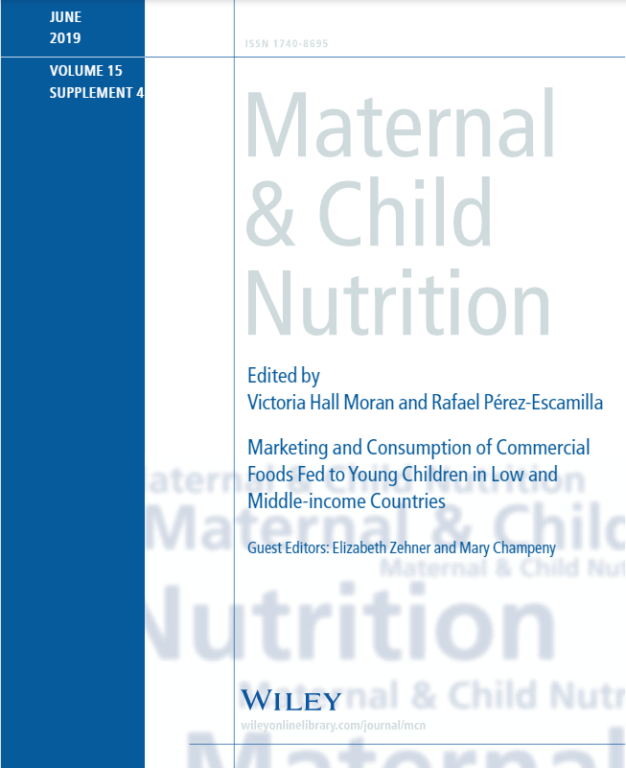This article was published in the Maternal & Child Nutrition Supplement: Marketing and Consumption of Commercial Foods Fed to Young Children in Low and Middle‐income Countries.
Access abstract in Khmer and French.
Abstract: Globally, monitoring and enforcement mechanisms for the World Health Organization’s International Code of Marketing of Breast‐milk Substitutes are often lacking. The Cambodian government adopted the Code as the national standard in Sub‐Decree 133 on Marketing of Products for Infant and Young Child Feeding. Following the formation of a multisectoral Oversight Board and development of detailed guidance documents for the implementation and enforcement of Sub‐Decree 133, a 7‐month pilot was conducted in 2017 to trial a monitoring system in four urban areas of Cambodia. The pilot included training of monitors from the Ministries of Health and Commerce, screening for violations at retail locations and health facilities, testing reporting mechanisms, and taking actions against violators. During the pilot, 85 national‐ and subnational‐level monitors were trained, 392 site visits were made, 2,377 monitoring checklists were completed, and 11 warning letters were issued to violators. Half of the completed checklists (52.9%) indicated Code violations, yet monitors submitted zero violation reports. The pilot revealed modifications needed to the monitoring system: integrate monitor trainings into existing ministry training curricula for sustainability; enhance targeting of monitors for Sub‐Decree training; delineate clear roles and responsibilities for the national and subnational levels; simplify monitoring checklists and violation reports; and improve integration of monitoring activities into routine ministry operations. Before the Sub‐Decree 133 monitoring and enforcement system is implemented throughout Cambodia, revisions must be made to ensure the viability of this system. Challenges and lessons learned can also guide Code monitoring efforts being undertaken by other countries.
Authors: Kroeun Hou, Mackenzie Green, Senveasna Chum, Christine Kim, Ame Stormer & Gary Mundy
View Resource
